What is a 7-Day Diabetic Food Log?
Are you looking to better manage your diabetes and stay on track with your eating habits? One tool that can be incredibly helpful in this journey is a 7-day diabetic food log. But what exactly is a 7-day diabetic food log, and how can it benefit you in managing your diabetes effectively?
This diabetic food log is a simple yet powerful tool that allows individuals with diabetes to track their daily food intake over the course of a week. By keeping a detailed record of what you eat and drink each day, you can gain valuable insights into your eating patterns, how certain foods affect your blood sugar levels, and where you may need to make adjustments to better manage your diabetes.

7-Day Diabetic Food Log Printable
 Printable Diabetic Food Log Sheets
Printable Diabetic Food Log Sheets

 Diabetic Food Diary Template Printable
Diabetic Food Diary Template Printable

 Weight Watchers Daily Food Log Printable
Weight Watchers Daily Food Log Printable

 Journal Food Diary Template
Journal Food Diary Template

 Diabetic Food Diary Template Printable
Diabetic Food Diary Template Printable

 Printable Diabetes Exercise Program
Printable Diabetes Exercise Program

 7-Day Insulin Resistance Diet Meal Plan Printable
7-Day Insulin Resistance Diet Meal Plan Printable

 7-Day Diabetes Meal Plan 1200 Calories Printable
7-Day Diabetes Meal Plan 1200 Calories Printable

What’s the Goal of This 7-Day Diabetic Food Log?
- Monitoring Your Blood Sugar Levels: Important goal of a diabetic food log is to monitor your blood sugar levels regularly. By recording your blood sugar readings at different times of the day, such as before and after meals and before bedtime, you can track how your food choices and portion sizes affect your blood glucose levels. This data can help you and your healthcare provider identify trends and adjust your diabetes management plan accordingly.
- Making Healthier Food Choices: By keeping a 7-day diabetic food log, you can also become more conscious of what you are eating and make healthier food choices. Seeing your food intake in writing can help you identify areas where you may be overindulging or consuming foods high in sugar, salt, or unhealthy fats. This awareness can empower you to make positive changes to your diet and opt for more nutrient-dense, balanced meals that support your overall health and well-being.
- Date and Time: Record the date and time of each meal and snack. This will help you spot any trends in your eating habits and how they may impact your blood sugar levels throughout the day.
- Food and Beverage Consumption: Write down everything you eat and drink, including portion sizes. Be as specific as possible to get a clear picture of your eating habits.
- Carbohydrate Count: Keep track of the amount of carbohydrates in each meal and snack. Carbs have the most significant impact on blood sugar levels, so it's essential to monitor your intake closely.
- Blood Sugar Readings: Note your blood sugar readings before and after meals to see how your body responds to different foods. This information can help you adjust your diet to keep your blood sugar levels stable.
- Medication and Insulin Dosage: Record any medication or insulin you take, along with the dosage. This is crucial for understanding how your medication affects your blood sugar levels in conjunction with your diet.
- Physical Activity: Document your physical activity levels each day. Exercise can impact blood sugar levels, so it's essential to include this information in your food log.
- Symptoms: Note any symptoms you experience, such as fatigue, dizziness, or changes in appetite. These can provide valuable insights into how your body responds to different foods and activities.
What Can This 7-Day Diabetic Food Log Teach You about Your Eating Habits?
- Understanding Your Eating Habits: One of the first things you'll notice when you start keeping a food log is that you may be eating more than you realize. Mindless snacking, oversized portions, and frequent trips to the vending machine can all add up quickly. By recording everything you consume, you can become more mindful of your eating habits and gain a better understanding of where you might be going off track.
- Tracking Your Nutrient Intake: A diabetic food log can also help you assess your nutrient intake and identify areas where you may be lacking. Are you giving your body the essential nutrients it needs daily? And are you watching your intake of sugar, salt, and unhealthy fats? By reviewing your log, you can pinpoint areas for improvement and make adjustments to ensure you're meeting your nutritional needs.
- Identifying Trigger Foods: Do certain foods cause your blood sugar to spike? Do you find yourself eating more when you're feeling stressed or bored? Keeping a detailed record of your meals and snacks can reveal patterns and associations between your emotions, behaviors, and food choices. Knowing your trigger foods and tricky situations helps you build better strategies to resist temptation, control cravings, and stay committed to your diabetes plan.
So, the insights gained from keeping a 7-day diabetic food log can be invaluable in helping you understand your eating habits, track your nutrient intake, identify trigger foods, and make informed decisions about your diet. By taking the time to document your meals and snacks, you can empower yourself to make healthier choices, manage your diabetes more effectively, and ultimately improve your quality of life.
More printable images tagged with:
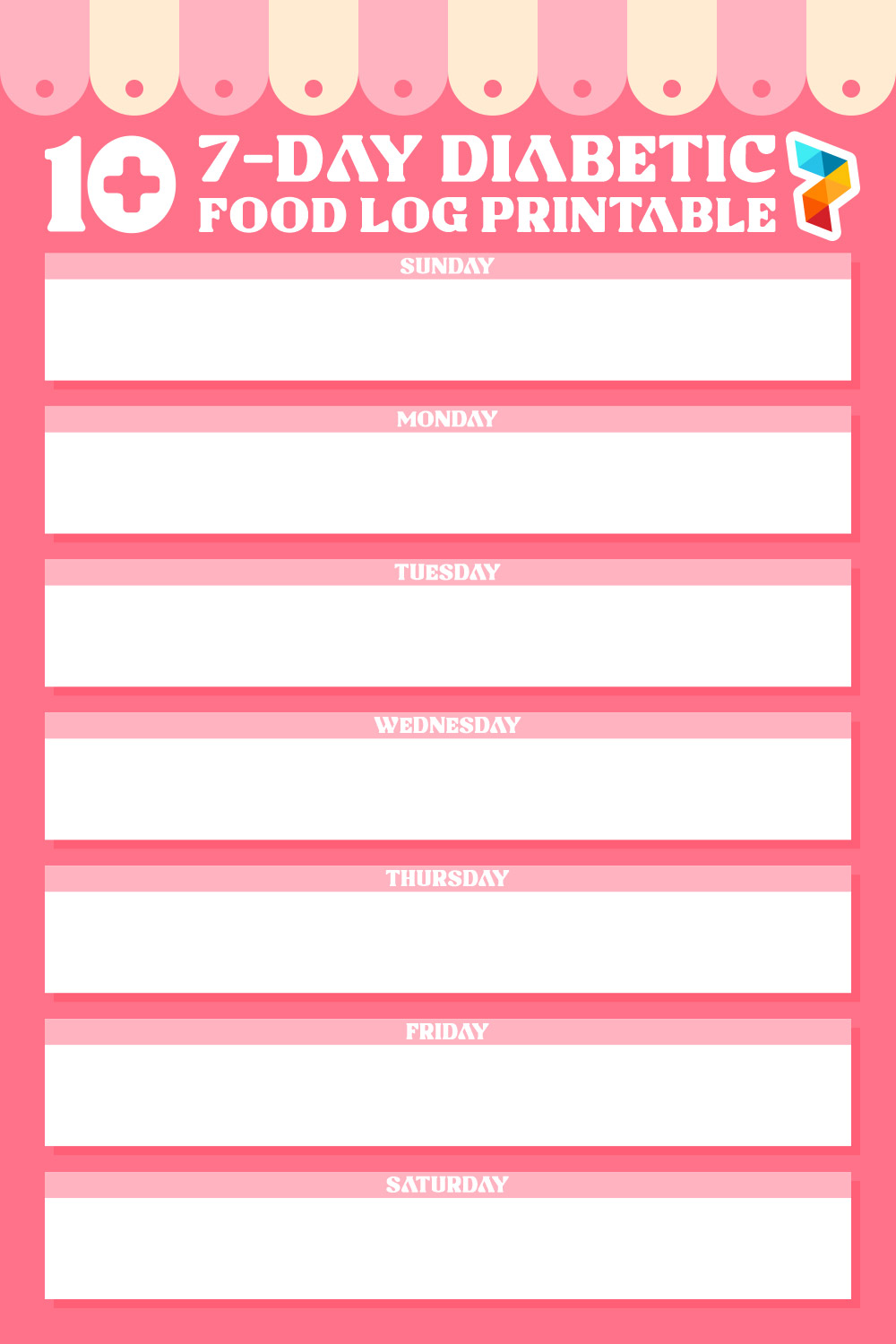
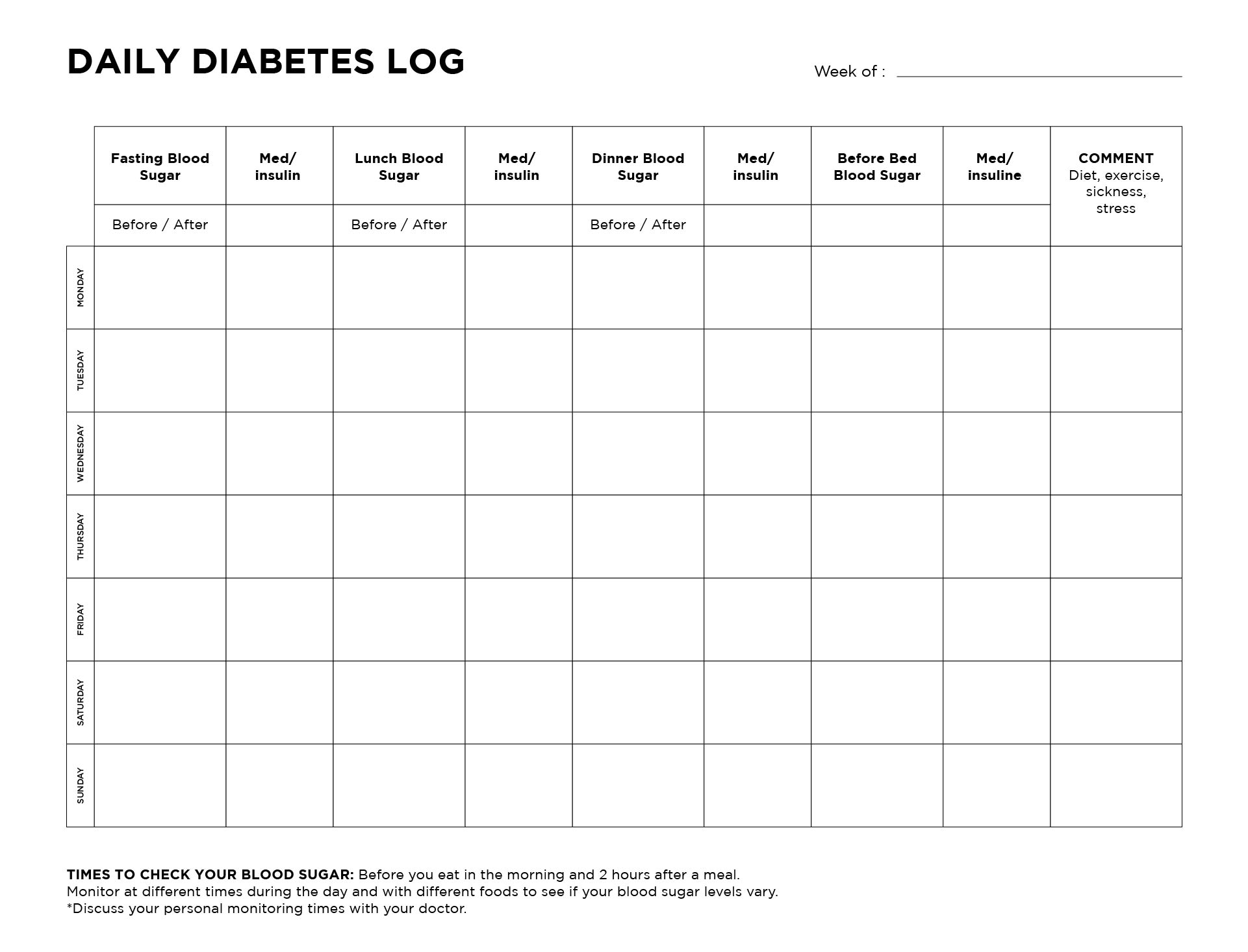
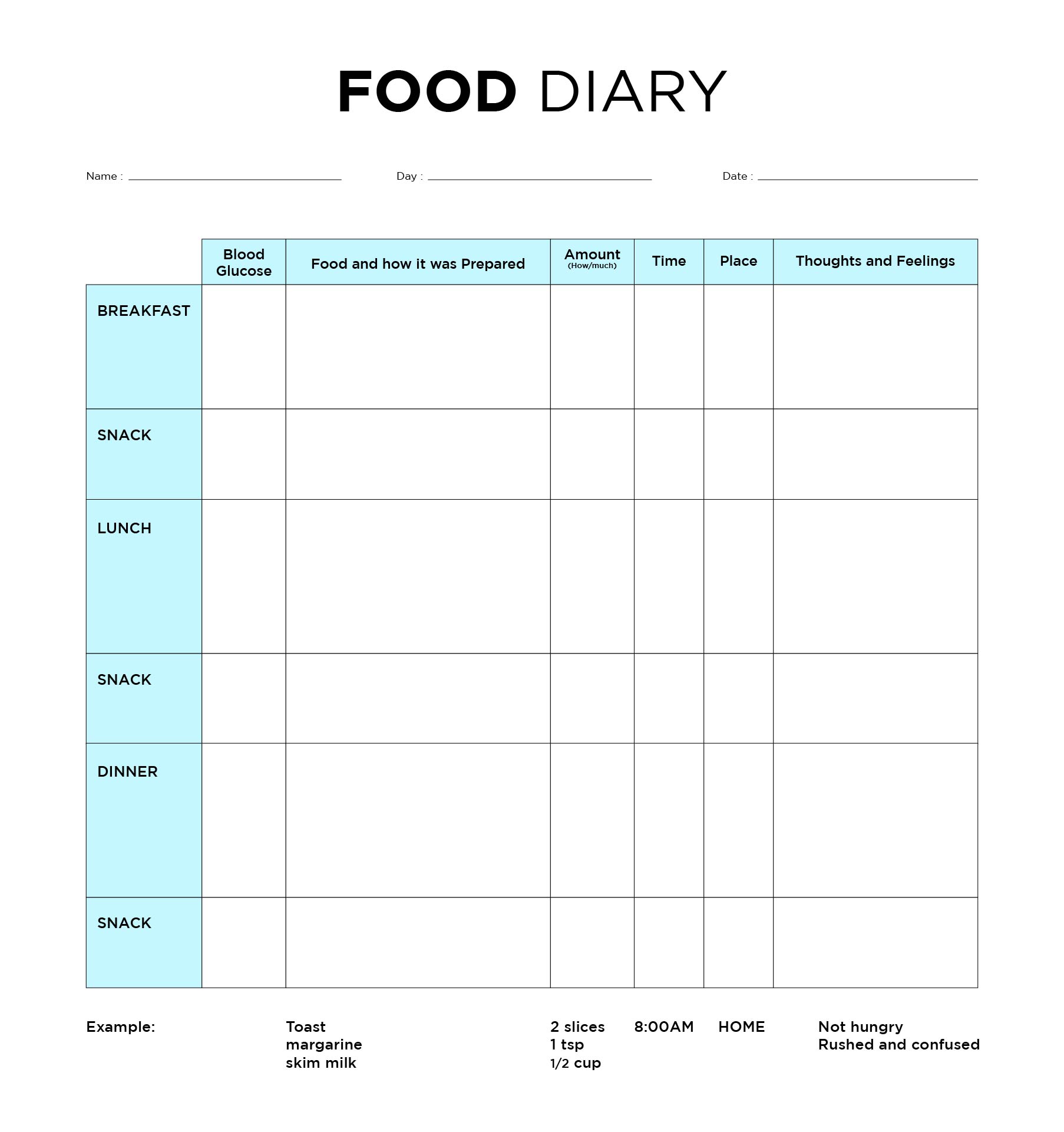
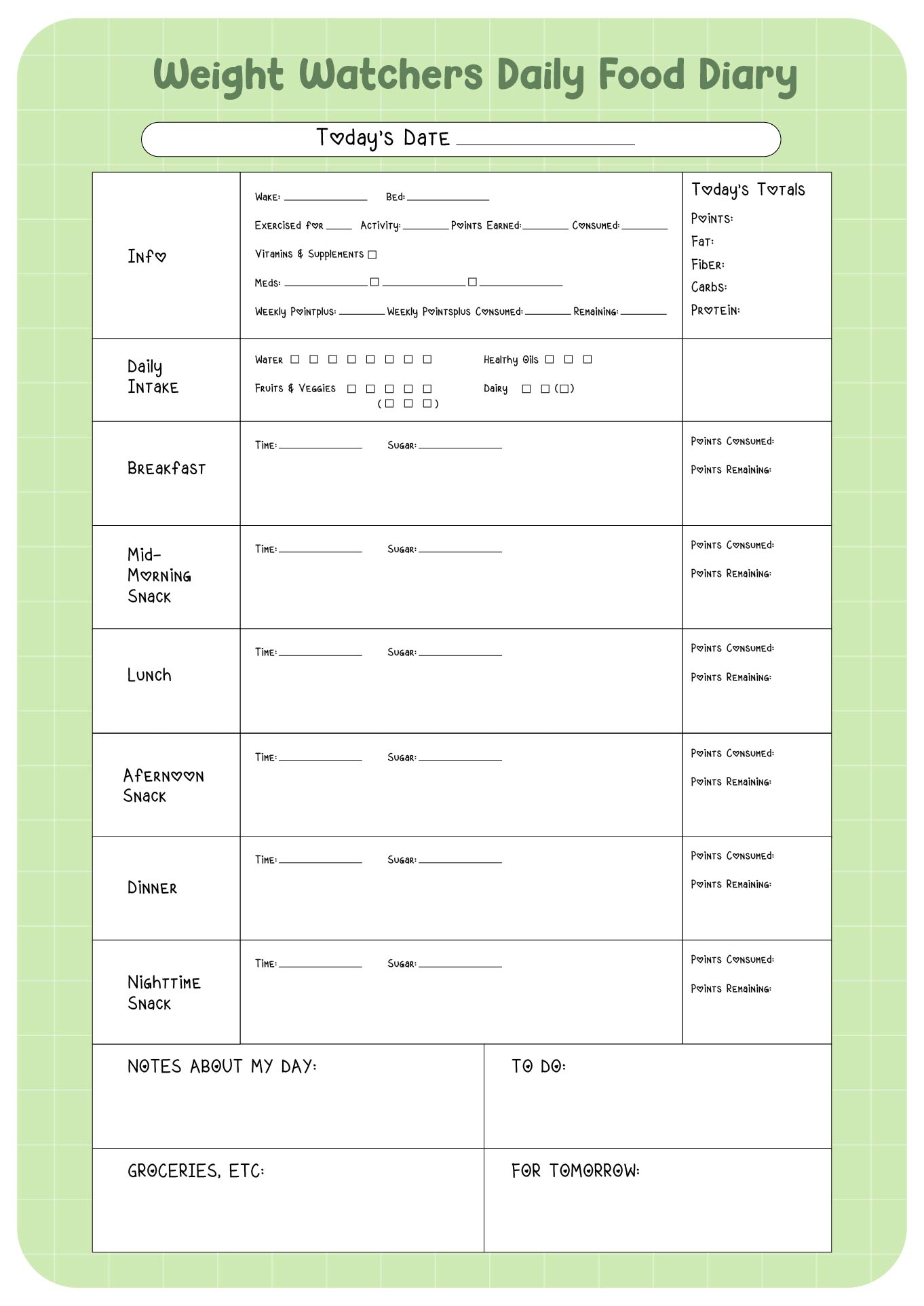
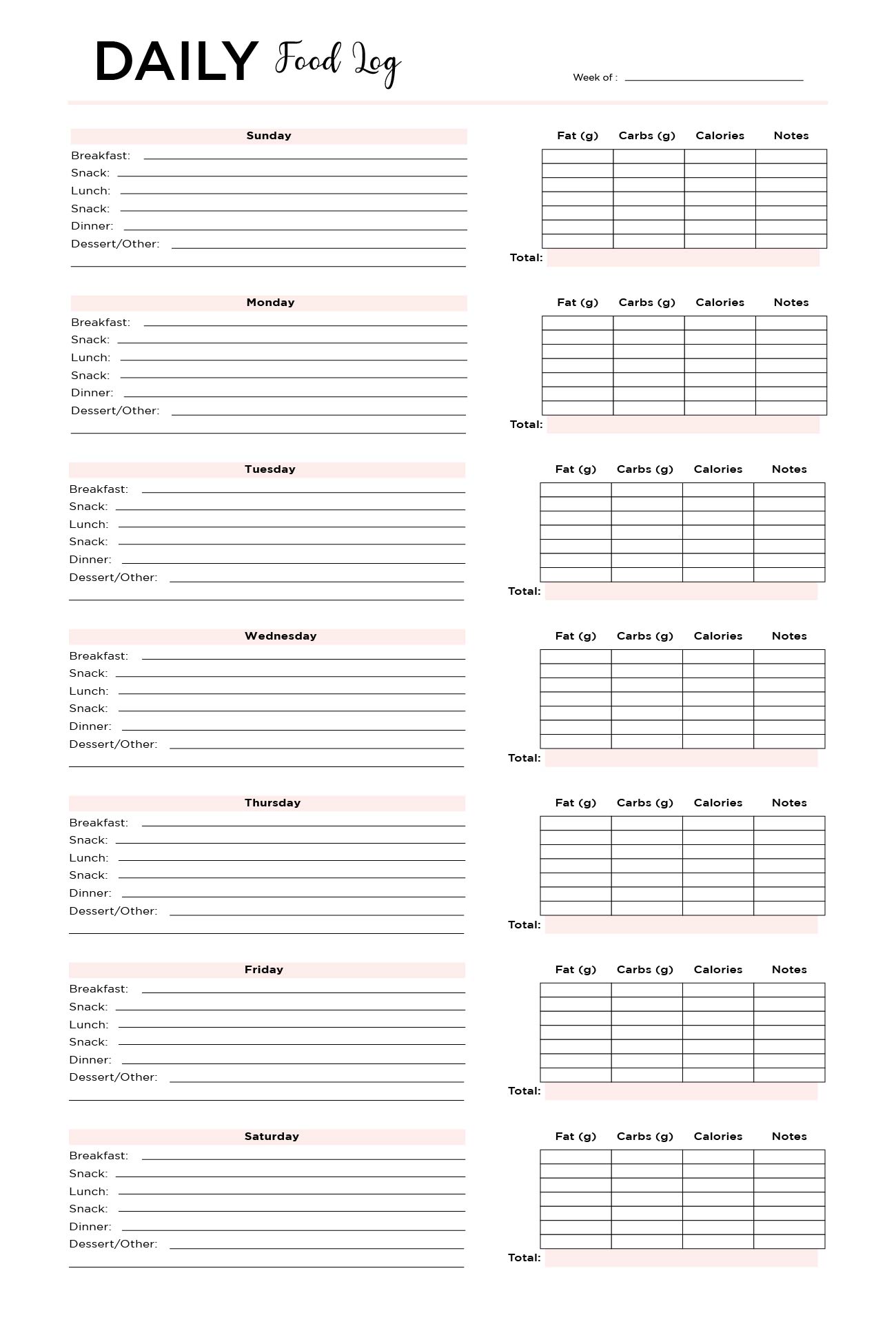
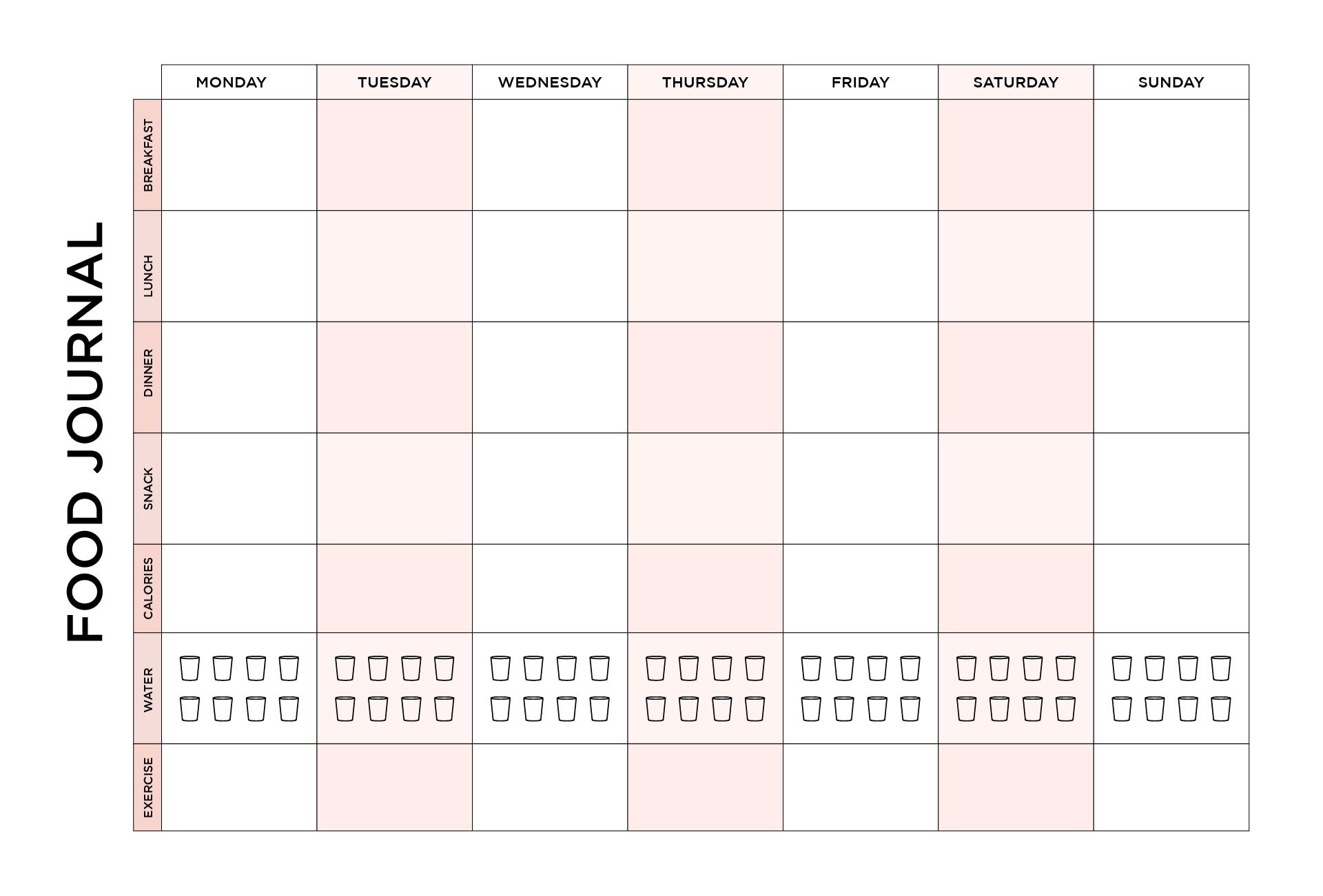
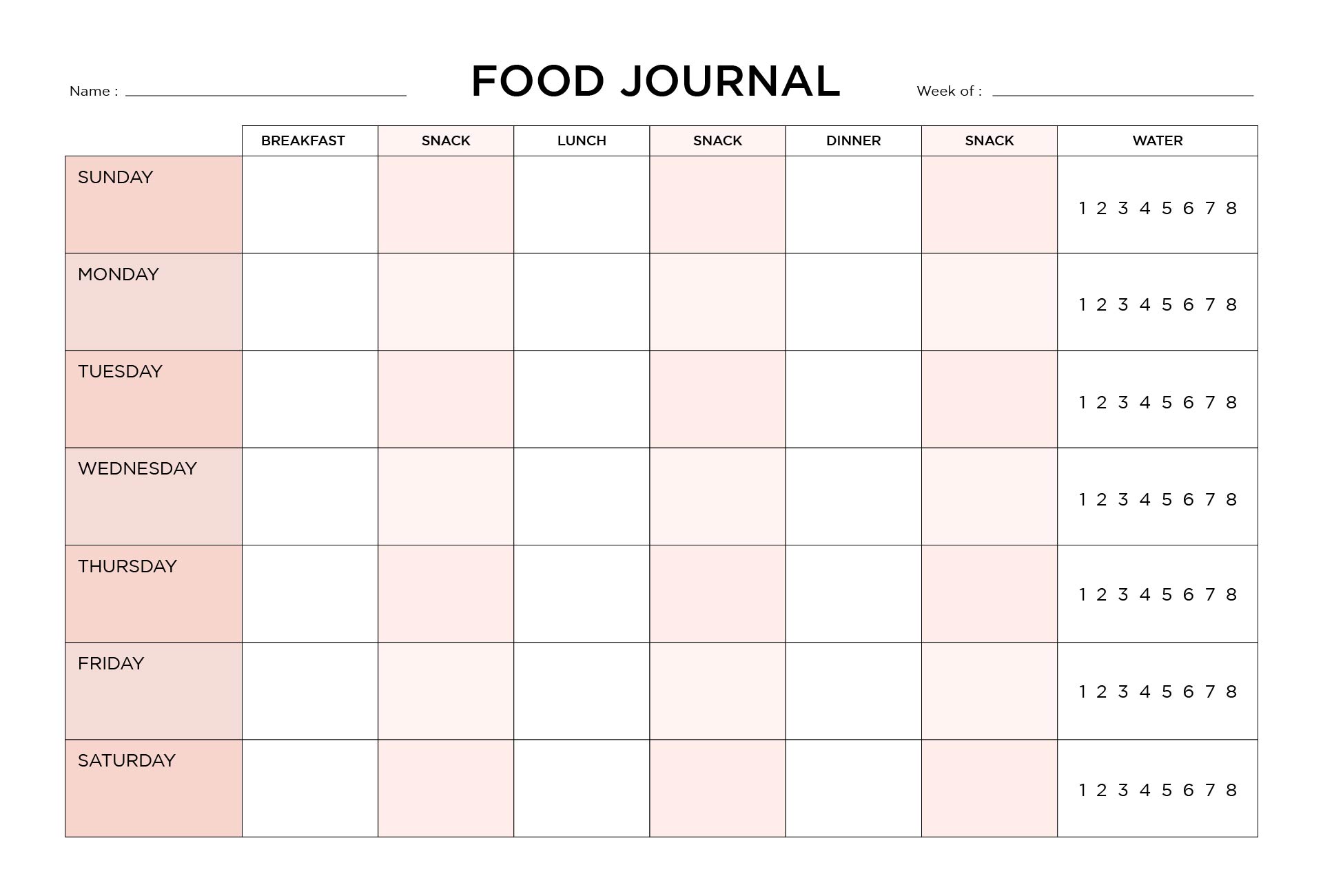
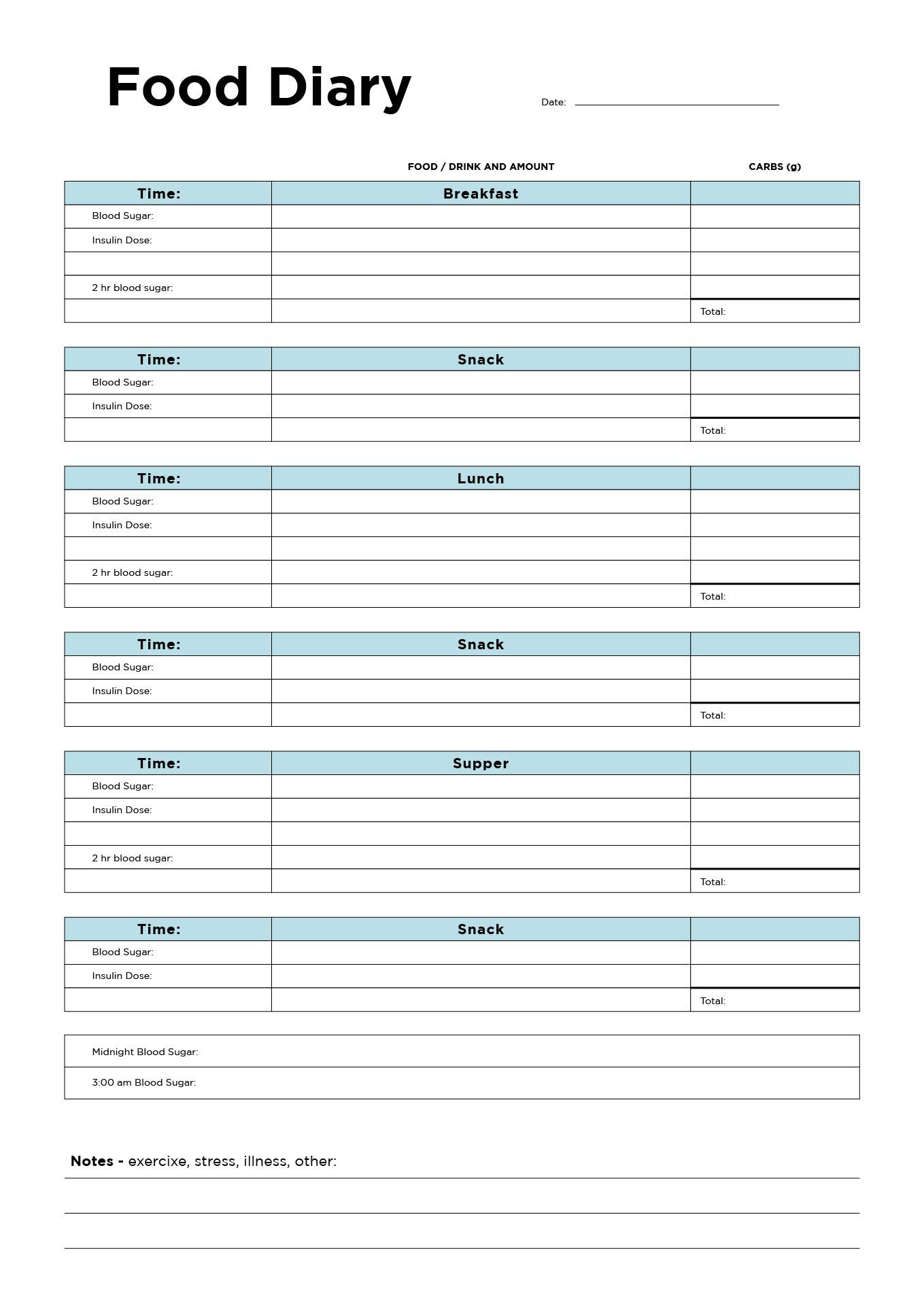



Have something to tell us?
Recent Comments
The 7-day diabetic food log printable helps individuals with diabetes track their daily food intake and monitor their blood sugar levels, promoting better dietary management and understanding of their overall health.
This 7-Day Diabetic Food Log Printable is such a helpful tool! It's simple, clear, and just what I needed to stay organized and track my meals. Thank you for making managing my diabetes easier!
Our 7-day diabetic food log printable provides a convenient way for individuals with diabetes to track their daily food intake, helping them stay on top of their nutritional goals and manage their condition effectively.